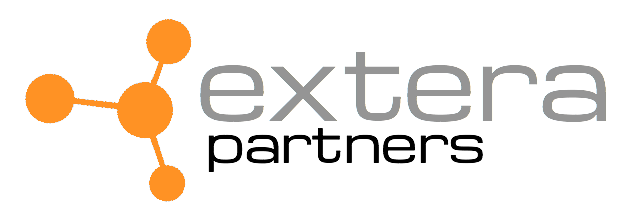BioInvent announces Cancer Immunotherapy Research Collaboration and License Agreement with Pfizer and issues new shares to Pfizer
BioInvent International AB (“BioInvent”) (OMXS: BINV), a biotech company focused on the discovery and development of novel immuno-regulatory antibodies to treat cancer, announces that it has entered into a cancer immunotherapy research collaboration and license agreement with Pfizer Inc. (“Pfizer”) (NYSE: PFE) to develop antibodies targeting tumour-associated myeloid cells.
Under the terms of the deal, Pfizer will pay BioInvent approximately $10 million in early payments, including an upfront payment, early research funding, and a $6 million equity investment in new shares of BioInvent at a subscription price of SEK 2.56 per share, which corresponds to an approximately 30% premium to the average volume weighted price for the share during the 10 trading days prior to 21 December 2016.
Assuming five antibodies are developed through to commercialization, BioInvent would be eligible for potential future payments related to certain development milestones, which could amount to more than $0.5 billion through the term of the deal, as well as up to double digit royalties related to any potential products that may result from the collaboration. Pfizer will have the right to develop and commercialize any antibodies generated to an undisclosed number of tumour-associated myeloid cell targets.
Commenting on the agreement, Michael Oredsson, CEO of BioInvent said: “We are very pleased to announce this discovery and development collaboration with Pfizer which will leverage our cancer antibody biology and immuno-oncology expertise. We are looking forward to working with Pfizer to deliver a number of first-in-class antibodies to potentially treat a range of cancer indications addressing unmet patient needs.”
BioInvent will leverage its cancer biology expertise, combined with its unbiased translational drug discovery approach (“F.I.R.S.T”), to identify novel oncology targets and therapeutic antibodies that inhibit cancer growth either by reversing the immunosuppressive activity of tumour-associated myeloid cells or by reducing the number of tumour-associated myeloid cells in the tumour.
“We believe co-targeting of tumour-associated myeloid cells has the potential to significantly improve the efficacy of currently available checkpoint inhibitor therapies, and may help activate anti-cancer immunity in currently non-responding patients and cancer types” said Björn Frendéus, CSO of BioInvent.
“We look forward to collaborating with BioInvent, as we believe that modulating the activity of tumour-associated myeloid cells presents an opportunity to help us expand our portfolio in oncology and ultimately deliver on our mission to bring innovative new medicines to cancer patients,” said Robert Abraham, Ph.D., Senior Vice President and Head of Pfizer’s Oncology Research & Development Group, Pfizer.
Directed Share Issue
As part of the agreement, the Board of Directors of BioInvent on 21 December 2016 resolved, based on the authorization of the annual general meeting on 12 May 2016, on a directed issue of 21,973,594 new shares to Pfizer at a subscription price per share of SEK 2.56, corresponding to a total investment of $6 million. The subscription price corresponds to an approximately 30% premium to the average volume weighted price for BioInvent’s share during the 10 trading days prior to 21 December 2016. The reason for the derogation from the shareholders’ preferential right is that the investment, in addition to providing BioInvent with new capital, brings Pfizer as a new strategic partner, in alignment with shareholders’ interests as a new shareholder.
As a result of the new share issue, the number of shares in BioInvent will increase from 282,721,619 shares to 304,695,213 shares, and the share capital will increase from 22,617,730 to 24,375,617. The new shares are expected to be registered with the Swedish Companies Registration Office and admitted for trade on Nasdaq Stockholm on 28 December 2016. Pfizer have undertaken, on customary terms and conditions, not to sell or otherwise dispose of the shares of the investment during a period of 90 days from the share issue. Following the directed share issue, Pfizer will own approximately 7,2% of BioInvent’s share capital.
Notes to editors:
About Tumour-associated myeloid cells
Tumour-associated myeloid cells are present in the tumour micro-environment where they contribute to the immunosuppressive activities that enable the development and persistence of solid tumours as well as metastatic dissemination. It has been shown that myeloid cell content, and over expression of myeloid chemo-attractants, correlates with poor prognosis in many cancer types.
In contrast to T cells, which are thought to be principal targets for currently available checkpoint inhibitor therapies, myeloid cells belong to the innate immune system. Optimal anti-cancer immune responses require both innate and adaptive (including T cell mediated) arms of immunity to be activated, and to co-operate, to eradicate cancer cells. This forms the basis for improved anti-cancer therapy by co-targeting of tumour-associated myeloid cells and checkpoint inhibitors.
About BioInvent
BioInvent International AB (OMXS: BINV) is focused on the discovery and development of novel and first-in-class immuno-regulatory antibodies to treat cancer. The Company’s clinical programmes are BI-1206, currently in a Phase I/II for non-Hodgkin’s lymphoma and chronic lymphatic leukaemia and TB-403, in cooperation with Oncurious, currently in Phase I/II for medulloblastoma. BioInvent has an exciting pre-clinical portfolio based on novel immuno-modulatory antibodies that target regulatory T cells (T-regs) and tumour-associated myeloid cells. In December 2016, the Company signed a strategic research collaboration with Pfizer Inc. BioInvent also works with leading academic institutions including the University of Southampton, Cancer Research UK, and Penn Medicine. BioInvent generates revenues from global partnerships, including Bayer Pharma, Daiichi Sankyo, and Mitsubishi Tanabe Pharma and from its manufacturing facility for the production of antibodies for research through to late-stage clinical trials.
